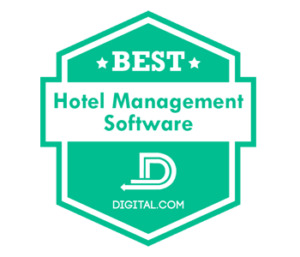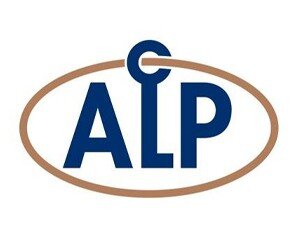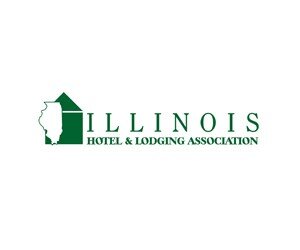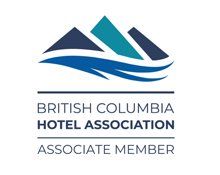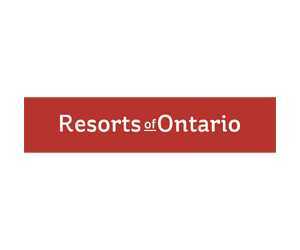Some of us at WebRezPro remember booking hotels before the digital age. It often involved receiving a tourist information guidebook with basic hotel descriptions and phone numbers only. Many hoteliers relied on brochures, magazine ads, or even a “vacancy” sign at the front of their property as their primary means of communication with potential guests. Surprisingly, this wasn’t too long ago!
Nowadays, thanks to a plethora of digital tools, businesses have numerous ways to reach consumers. What’s more, we’re no longer engaged in one-sided conversations with customers. In this digital age, hoteliers no longer talk at guests but with them, wherever they are—from your website and email to SMS and digital guidebooks. It’s high-octane hospitality!
To help you make the most of your digital touchpoints, we’ve created this quick guide outlining how each one supports your overarching communication strategy to give your bottom line a high-octane boost, too.
Online Booking Engine
Who doesn’t love booking online? As a guest, it’s so easy to see what dates, rooms, and rates are available. As a hotel, having an online booking engine on your website is synonymous with good customer service—and it makes life easier for you, too. But are you making the most of your booking engine? Many hotels miss the important piece that booking engines play in their communication puzzle.
While guests are online and browsing through their accommodation options, take the opportunity to:
- Write captivating room descriptions that identify your unique selling proposition.
- Implement dynamic pricing based on local events, demand, and season.
- Upsell amenity add-ons and vacation packages to offer guests something special.
- Build guest trust with transparent reservation and cancellation policies.
- Capture first-party guest data to leverage for future personalized offers, campaigns, and retargeting ads.
- Automate real-time booking confirmations providing guests with information that helps build trust.
Contactless Check-in
Most guests are comfortable with booking online, so contactless check-ins are the next logical step in the guest journey. While they can skip the front desk and enjoy checking in from the comfort of their own device, don’t miss your opportunity to welcome guests as you would in person. In your hotel’s check-in messaging, ensure to:
- Include clear steps on how to check in to remove any friction (or objection).
- Build excitement by briefly highlighting key amenities and providing the opportunity to add on extras, from in-room refreshments to room upgrades. Linking to your digital guidebook can also build excitement and enhance hospitality at this important touchpoint.
- Provide support and remind guests that you are there for them via chat, phone, or email if they have any questions or issues—this can make or break your first impression.

Automated Emails
Automated emails are a key communication piece for hotels and, once set up, require little effort to maintain! Configure email templates in advance, personalized and triggered based on reservation data. You can further customize emails with special offers or relevant visitor information based on room and rate types booked.
To streamline communication, enhance the guest experience, drive repeat bookings, and ultimately increase hotel profits, consider the following types of automated emails:
- Booking confirmation: Send booking confirmations along with essential information for a smooth pre-arrival experience, including relevant upgrade and add-on options.
- Pre-stay email: Build excitement by offering relevant upsells and sharing helpful details, such as local attractions, dining options, and check-in procedures to improve the guest’s stay.
- Post-stay surveys and reviews: By effectively implementing post-stay review requests and leveraging the resulting feedback, hotels can improve their online reputation, build trust with potential guests, and ultimately increase bookings. Positive reviews and reputation management are powerful marketing tools.
- Abandoned booking reminders: Some guests who “need to think about it” may require a bit more encouragement to complete their booking. Follow up with an offer to help them finish their reservation and share a link to your FAQs and additional trip resources to help them make up their mind.
- Special offers: Email marketing campaigns can be automated based on first-party data and triggered for birthdays and anniversaries, winbacks/re-engagement, seasonal offers, and invitations to join your loyalty program. CRM integration makes targeted, revenue-generating email marketing campaigns a breeze (more on that below!).
CRM
A customer relationship management (CRM) system leverages first-party data to target communications effectively. It can be used for:
- organizing and analyzing guest data
- developing guest segments
- sending targeted email marketing
A CRM enables hotels to segment their email lists based on various criteria, such as guest preferences, booking history, and demographics. This guest segmentation allows hotels to send highly targeted and personalized emails that engage guests and drive bookings. Building personalization into your hotel communications wherever you can is a surefire way to grow loyalty.

Guest Messaging
Guests are your hotel’s besties, so keep in touch! There are various messaging platforms to connect you with guests in real time before, during, and after their stay.
Guest messaging goes beyond automated emails toward more immediate forms of communication, including:
- SMS: The majority of guests are comfortable communicating by text message once they’ve given you permission to reach out in this way.
- Chatbots: Leveraging AI, chatbots can be implemented on your website, hotel app, or text messaging to provide answers to your FAQs. Available 24/7, you can rest assured that guest help is always at their fingertips. While chatbots can answer common questions, access to a real person through your app is key for dealing with outside-the-box queries or urgent issues.
- In-room devices: In-room tablets are growing in popularity. They give guests access to personalized room settings (like wake-up calls, lighting, and temperature) and are the perfect home for your digital guidebook, used for recommendations, room and activity add-ons, room service, and property and amenity information.
As part of a hotel’s communication strategy, messaging tools are used to provide quick responses to guest inquiries, offer personalized recommendations, address concerns promptly, and enhance the overall guest experience. This convenient, real-time communication method can lead to improved guest satisfaction, loyalty, and increased revenue through upselling and repeat bookings.
Digital Guidebook
An online or mobile tool that hotels use to provide guests with information about their services, local attractions, and more, a digital guidebook can boost hotel sales by promoting upsells like room upgrades, spa treatments, and special packages. As well, offering local recommendations supports partnerships with other area businesses, amplifying your property and promoting your local region in the process.
Providing information about your property and location in this convenient and accessible way helps people make the most of your property for greater guest satisfaction and TrevPar!
Reputation Management
In this digital age, consumers are more heard than ever—not just by the businesses that serve them but by other consumers as well. Social media and online reviews empower customers to voice their opinions that can make or break a business, which is why it’s vitally important for hoteliers to monitor and manage their online reputation.
Staying on top of what your guests are saying online is much easier with an automated reputation management system that scans the internet for reviews and social media mentions about your property, bringing them all together in a single dashboard from which you can respond to those comments. This software also makes it easy to gather feedback from guests and automatically publish positive survey responses to your favorite review site to build your reputation and drive more bookings.
Good Riddance to the Good Old Days
Good riddance to the so-called good old days of hotel communication! While digitization of our world may have felt impersonal at one time, these days it’s more evident than ever that digital communication brings us closer together.
With a range of tools at their disposal, hoteliers have the power to engage guests, from online booking engines that offer seamless booking experiences to contactless check-ins that prioritize guest convenience and automated emails that nurture guest loyalty. Embrace the digital age to supercharge your communication strategy and watch your revenue grow as you connect with guests in a meaningful and efficient way.











